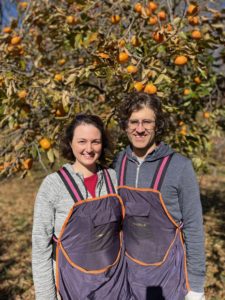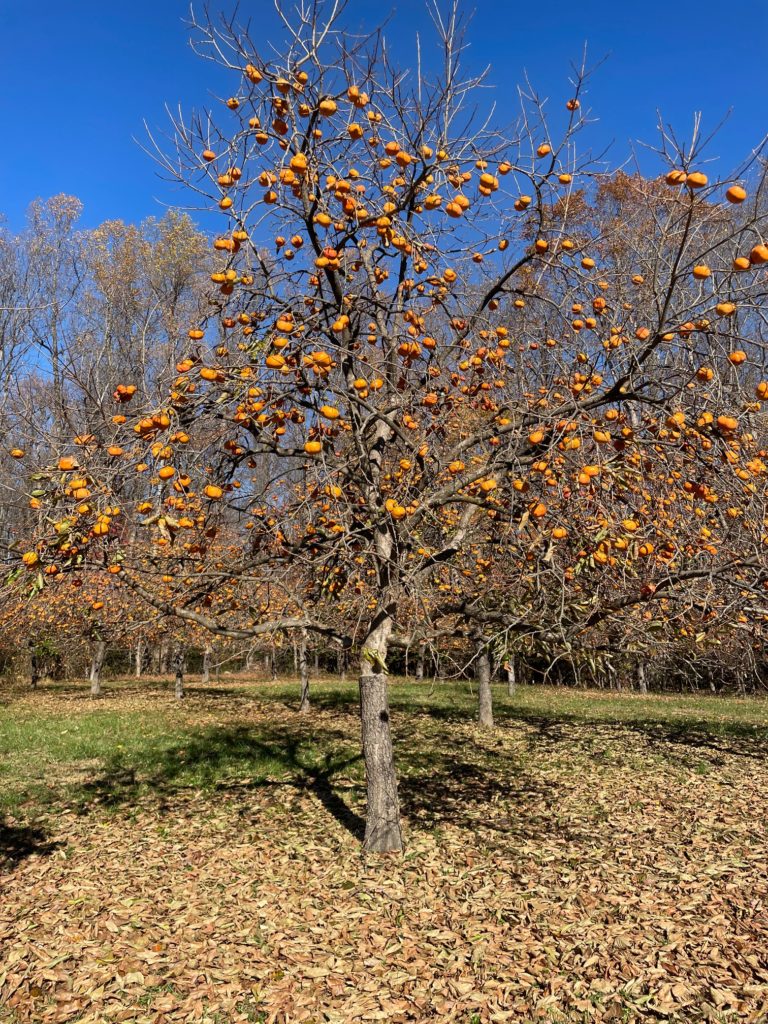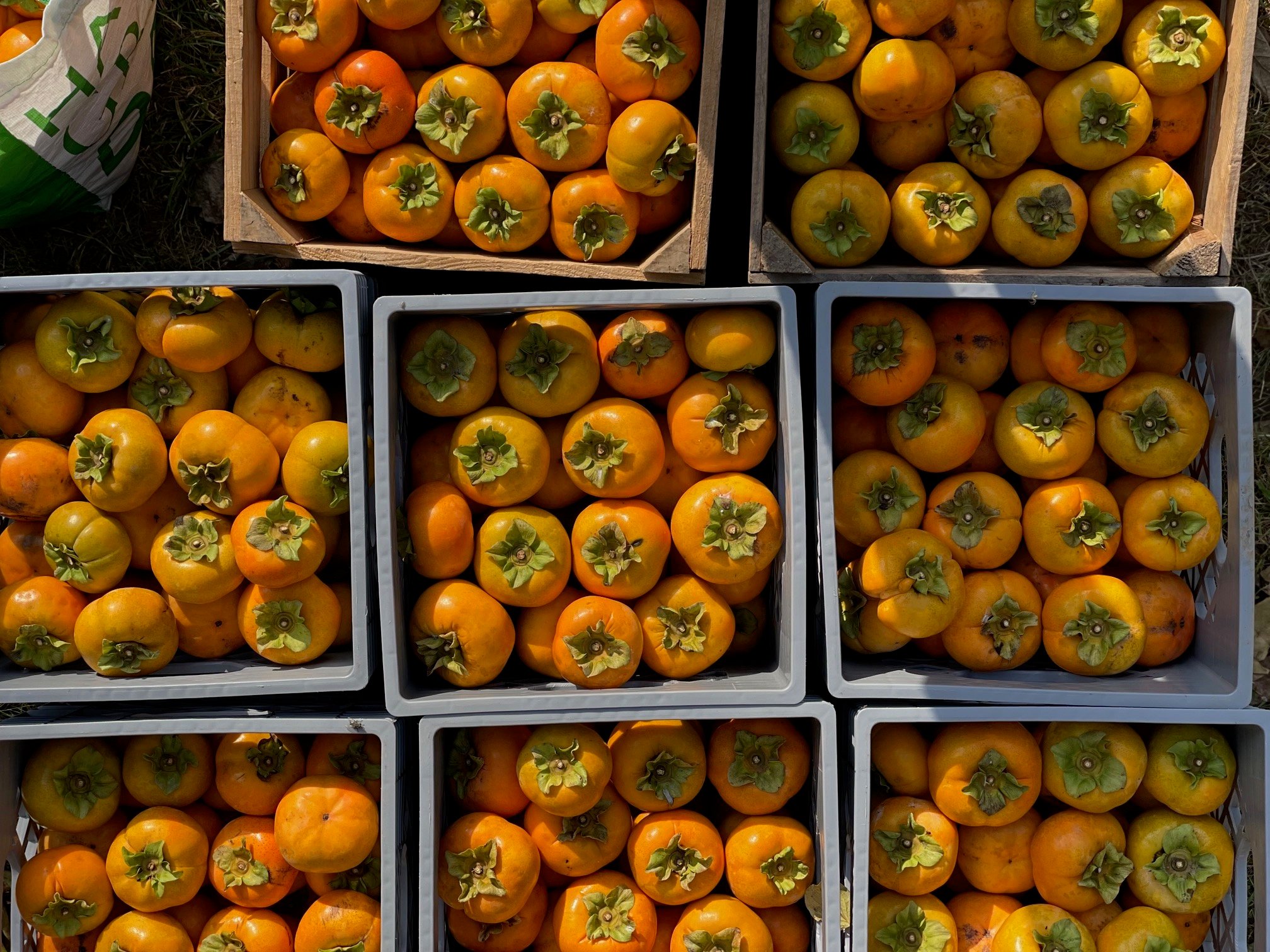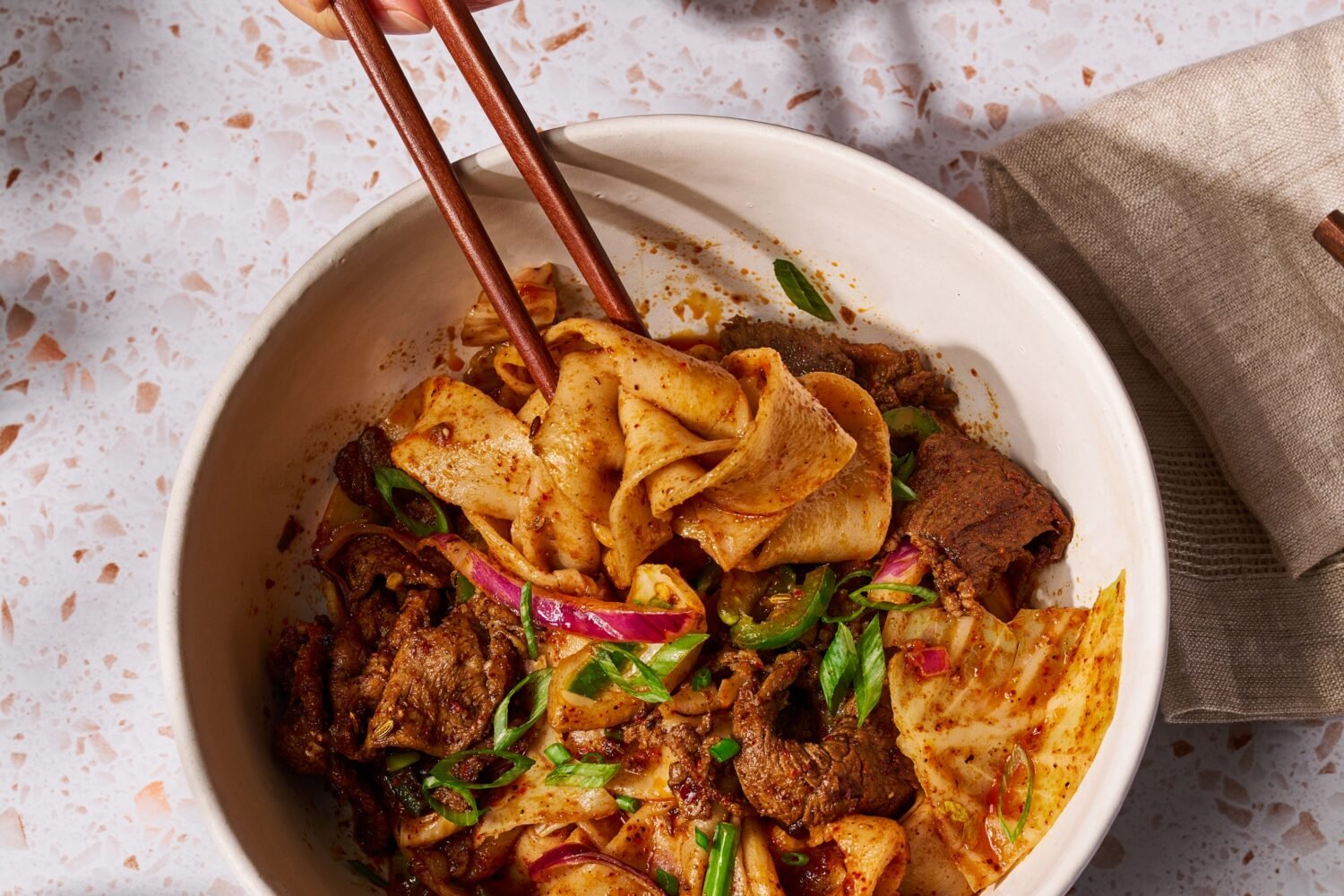Sophie Kasimow and Seth Shames started out as casual persimmon fans. She’s the Health Policy Director for Senator Bernie Sanders, and he’s the managing director for a sustainable agriculture non-profit. Every fall, the couple loved to buy persimmons at the Takoma Park Farmers Market and chat up grower Bill Preston. Little did they know they’d one day end up owning his orchard—the only place commercially growing single-variety Asian persimmons on the East Coast.
It started with a casual friendship with Preston, a former USDA and EPA horticulture expert who also wrote a book about Chinese persimmon growers. One year, he invited the couple to visit his Owings, Maryland orchard and pick some fruit themselves. “It was beautiful,” Kasimow says. “And we thought, ‘Maybe in some other version of our lives, maybe we would work on this orchard.'”

Shortly after, Preston sold the orchard, and a couple years after that, Kasimow and Shames saw on Facebook that it was on the market again. “We were like ‘Haha, we should totally buy it,” Shames recalls. “Over the course of a week or something, it became, ‘Wait, should we buy it?! We should totally do this.'”
In 2018, they actually did it. They didn’t have too much experience beyond a community garden plot. But it turned out growing persimmons was an ideal agriculture side hustle. The harvest season is relatively short—roughly four to six weeks from mid-October through end of November or early December—and doesn’t require a ton of work the rest of the year. “We were just starting a family at that time. We thought it’d be a nice way to spend time with friends,” Shames says. “Sophie likes to say it was my mid-life crisis. There’s probably some truth to that.”
These weren’t just any persimmons either. Local wild persimmons are small and super astringent unless they’re super ripe and soft. These, however, are Gwang Yang—a larger Korean variety of non-astringent persimmon that looks like an orange tomato but has the consistency of an apple. “Bill used to say, ‘Anything you can do with a peach, you can do with a persimmon,'” Kasimow says.

Working with the University of Maryland, Preston had tested more than 80 varieties of Asian persimmons, rating their flavor, appearance, and other qualities to determine which would grow best in the Mid-Atlantic. Gwang Yang rated the highest. To help them adapt to the local climate, he grafted cuttings onto the trunks of native persimmon trees, which he grew from seed. “It’s extremely rare to be growing this here,” Shames says. When Preston passed away in 2019 at the age of 90, they named the place after him: Preston’s Orchard.
Over the years, Kasimow and Shames have sold the persimmons to a few restaurants, including acclaimed Oyster Oyster in Shaw this season. Before it closed, pickle-maker Number 1 Sons used the fruit to make a special kombucha. Most of the persimmons, however, now go wholesale to other farms such as Moon Valley Farms and Twin Springs Fruit Farm, which offers them to the public at a number of local farmers markets.
“As far as demand goes, I can’t even see what the upper limit would be,” Shames says. “We’ve gone to farmers markets and things. We’ve had people line up to get them. It’s almost like a cult following.”
But the commercial enterprise is limited given their day jobs and two young kids. The fruit is harvested exclusively by friends and family who are rewarded with all the persimmons they can carry. After a particularly bountiful season this year, Preston’s Orchard will sell about 5,000 pounds of fruit.
“We’re not planning on being persimmon magnates at this point,” Shames says, but they are planting some new trees. “We want to keep the legacy going.”












